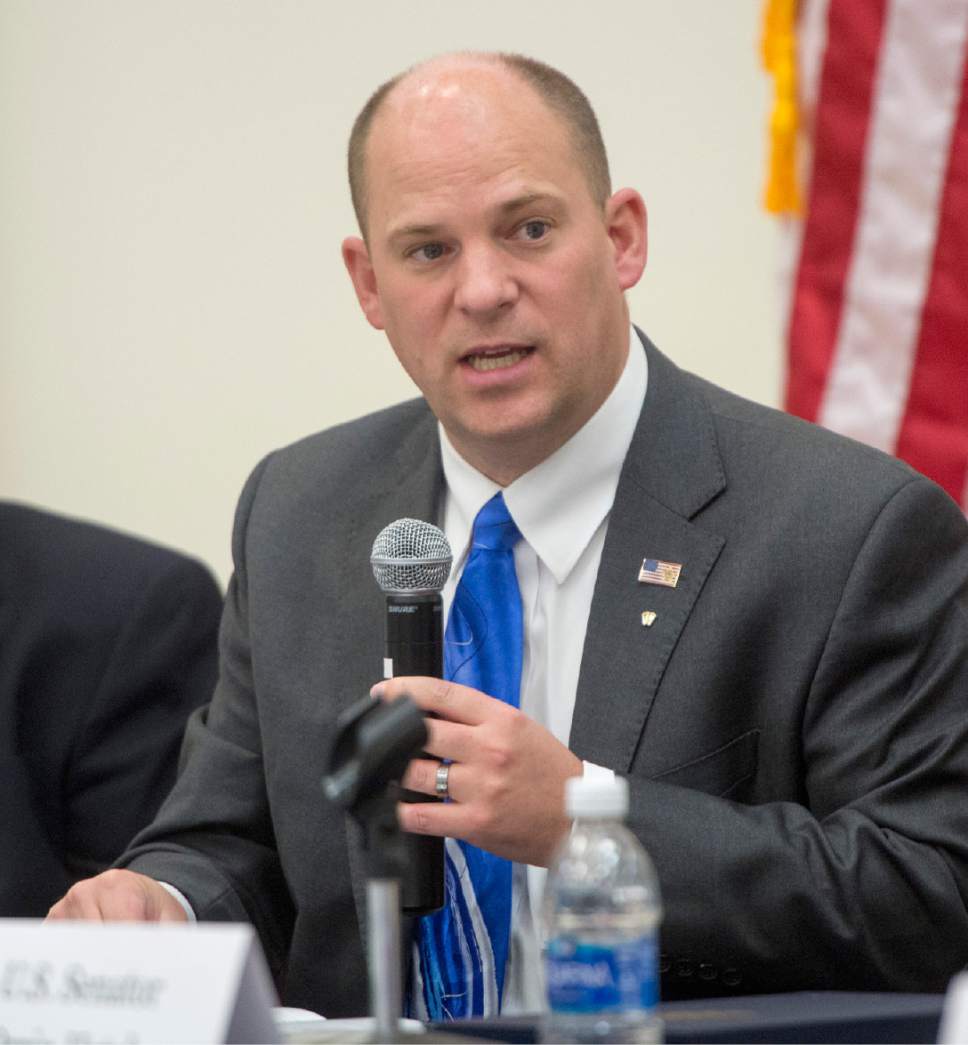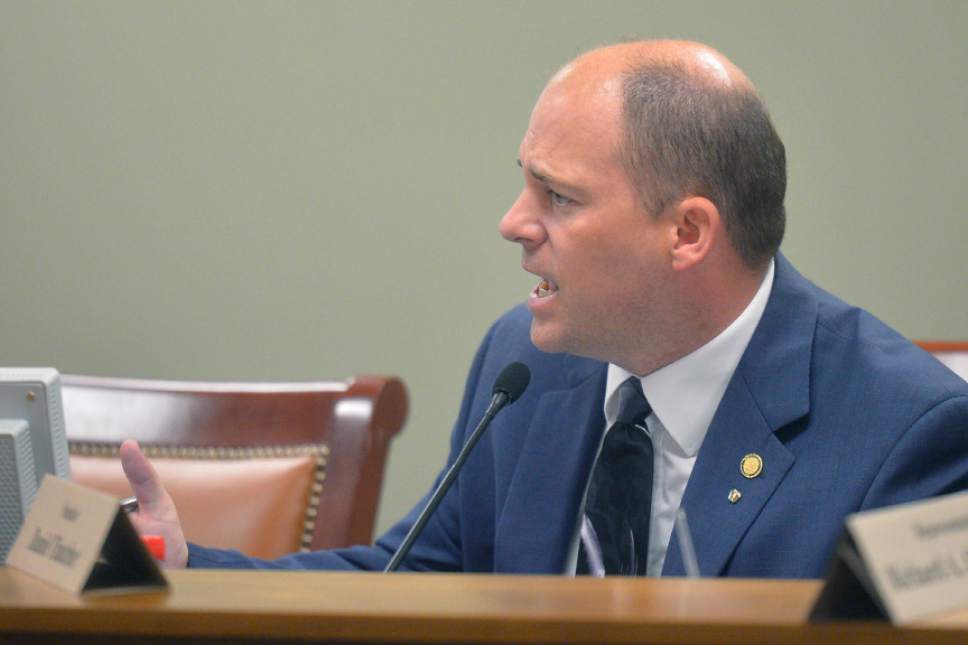This is an archived article that was published on sltrib.com in 2017, and information in the article may be outdated. It is provided only for personal research purposes and may not be reprinted.
A West Valley City senator is trying to put a new spin on an old problem, proposing a bill to give Utah a workable hate-crimes law by placing a greater emphasis on criminal, not social, justice.
But please, asks Republican Sen. Daniel Thatcher, don't call his bill hate-crimes legislation.
"This is not hate crimes," Thatcher said. "You can't prove hate. But you know what you can prove? That someone selected a victim. You can prove they chose them."
That said, SB72 — titled Victim Selection Penalty Enhancements — reads much like its unsuccessful predecessors, including one bill run last year by then-Sen. Steve Urquhart, R-St. George.
Under SB72, prosecutors could seek a one-step sentencing enhancement if they can prove a crime, whether against a person or property — was driven by a belief or perception about the victim's ancestry, disability, ethnicity, gender, gender identity, race, religion or sexual orientation. That would, for example, increase the punishment for a class A misdemeanor crime to a third-degree felony.
The bill, which would repeal existing Utah hate-crime law, also includes protections for free speech and association, so a person's words, social media posts, or their membership in any group or organization could not be used against them, unless prosecutors can prove a direct tie to an alleged crime.
SB72 would also require prosecutors to meet the "beyond a reasonable doubt" standard in order to seek a penalty enhancement.
Thatcher says that means a perpetrator would have to specifically telegraph a reason for choosing his or her victim.
"You must have an overt action that declares to the world why you did it," he said. "It's those declarations that make this an act of terror against a community."
The bill was drafted with some help from a survey of laws from across the country which have been upheld by the courts, Paul Boyden, executive director of the Statewide Association of Prosecutors, said.
"This bill is solidly constitutional," Boyden said, and "a little cleaner" and more precise in its approach.
Bias-motivated crimes, or hate crimes, are considered particularly egregious because they send a broader message or threat of intolerance against a class of persons or groups.
State prosecutors have long been asking for a law with actual bite. They say the existing law is unenforceable because its use is limited to misdemeanor-level crimes and it lacks a list of protected groups.
The only known successful prosecution under existing state law was tossed out by the Utah Supreme Court, which said the statute is not a hate-crimes law, but rather an "exercise of rights law."
The FBI's national crime statistics report shows more than 12,700 biased-motivated criminal incidents and offenses were reported nationwide in 2015, the most recent year for which data is available.
Nearly 60 percent of the 7,121 victims were targeted because of their race or ethnicity; 20 percent were targeted for their religion and 18 percent because of their sexual orientation.
Utah's data for 2015 shows a similar trend. Of the 59 bias-related crimes reported to the state Bureau of Criminal Identification, 33 were related to race — with white victims the primary target — and 14 were related to religion. Ten bias crimes were perpetrated against victims who are from the LGBT community, the data shows.
Past attempts to enact a tougher Utah hate-crimes law have failed, primarily because the state's conservative Legislature had opposed any statute that offered special protections for the lesbian, gay, bisexual and transgender community.
Others have objected to codifying any list or protected groups in statute or expressed fear about eroding free speech.
The Sutherland Institute, a conservative think tank, has long opposed hate-crimes legislation and has similar apprehension about SB72.
In 2015, Utah lawmakers passed a statewide nondiscrimination law aimed at protecting the LGBT community in matters of housing and employment, but that also strives to guarantee religious liberties.
"Why can't we do that here?" said the institute's Derek Monson, who said some fear SB72 list of protected classes takes Utah down the road to a culture war that may impinge on the religious-freedom interests of others.
"The hate-crimes bill applies to everybody," he said, "but it doesn't serve everybody equally in terms of what their personal interests and desires are."
Sutherland, he said, is currently talking to a handful of lawmakers about possible companion legislation to address religious liberty and tolerance concerns.
Thatcher said he's more than willing to consider — and possibly support — any proposal to address the issues SB72 seeks to address, as long as it is "sufficiently crafted and sufficiently vetted."
He is not, however, open to any attempt to amend SB72 in a way that would limit the number of people it is designed to protect.
"This is not a matter of culture wars. This is not a matter of social justice," Thatcher said. "This is a matter of criminal justice."





